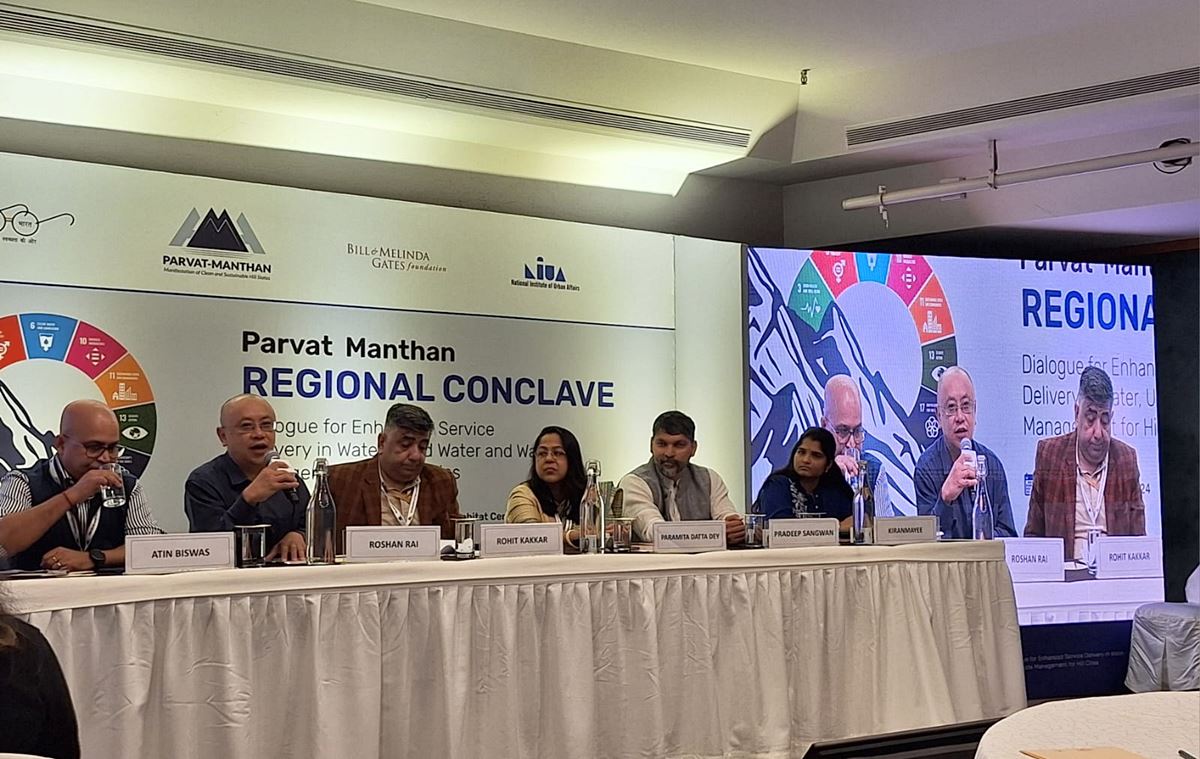
Parvat Manthan saw delegates from Bhutan, India and Nepal in a Dialogue for Enhanced Service Delivery in Water, Used Water and Waste Management for Hill Cities on 3 and 4 December 2024, India Habitat Centre, New Delhi. The dialogue was hosted by National Institute of Urban Affairs, Integrated Mountain Initiative, ICIMOD and BORDA focused on enabling equitable sanitation services and implementing decentralised liquid waste management technologies, which are critical for promoting health and well-being in the often-remote and ecologically sensitive areas of the Himalaya. The conference also presented solid and legacy waste management in the important and fragile socio-ecology of the Himalaya as well as from a climate perspective.
Mr P. D. Rai, Integrated Mountain Initiative highlighted the growing challenges of water security in the fast growing cities of the Himalaya with a special focus on Gagtok that is a clear climate change impact. He called on an urgent policy and political action that is needed to redress it. Mr. Anup Karanth, World Bank showcased the use of GIS for planning for water based disasters as well as the need for real time information sharing that is crucial for responding to disasters. Ms. Pragya Pradhan, UN-Habitat Nepal called on the need to bring global perspectives into local sustainability action and also advocate for appropriate and just global resources to combat the challenges the Himalaya are facing.
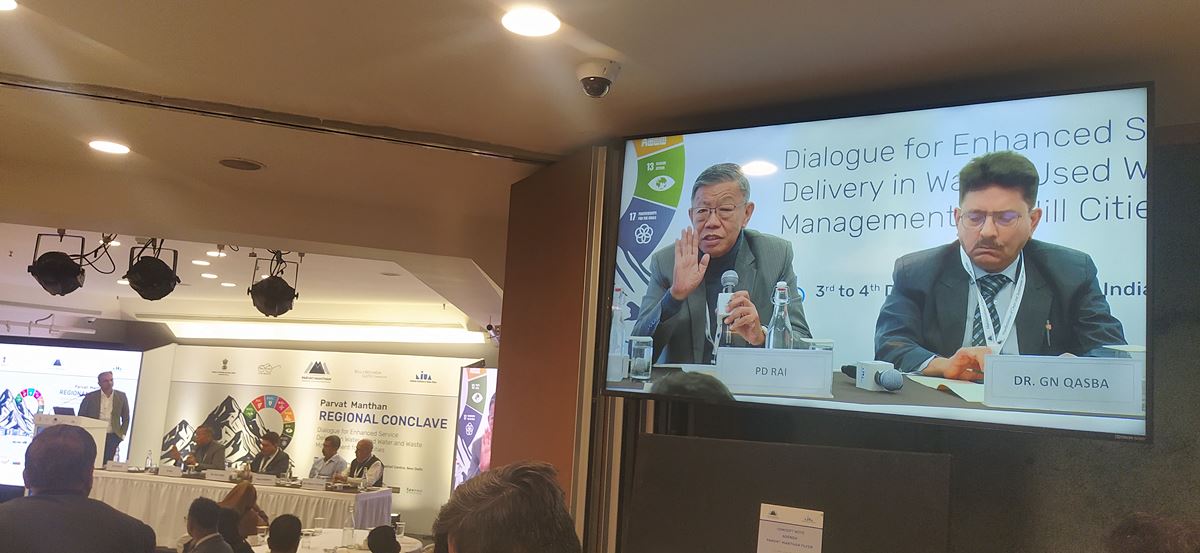
Mr Surendra Chawhan Mayor Shimla shared the water woes and the finan NeWcial crisis to redress it in his city. He also shared the burden on resources with the tourist inflow and the need for acknowledgement of the Himalaya for the well being of the nation. Mr Tikendra Panwar, ex Mayor of Shimla called on a need for a Himalayan development paradigm that recognises the importance and fragility as well as the ecological services that Himalaya provides for the nation and the global community. He highlighted that the existing extractive development process drains the Himalayan resources and does not compensate it adequately. Mr. Arvind Mehta, CBGA and former member of 15 Finance Commission called on the need for making the State Finance Commissions robust. He went on to explain that the devolution of the financial resources to ULBs are limited making the finance starved ULBs functioning difficult. Ms Shrestha Saraswat, Janagrah further highlighted the need for devolution of powers and finances to ULBs as well as the issues and challenges of tied funds that make ULBs of small population difficult to function.
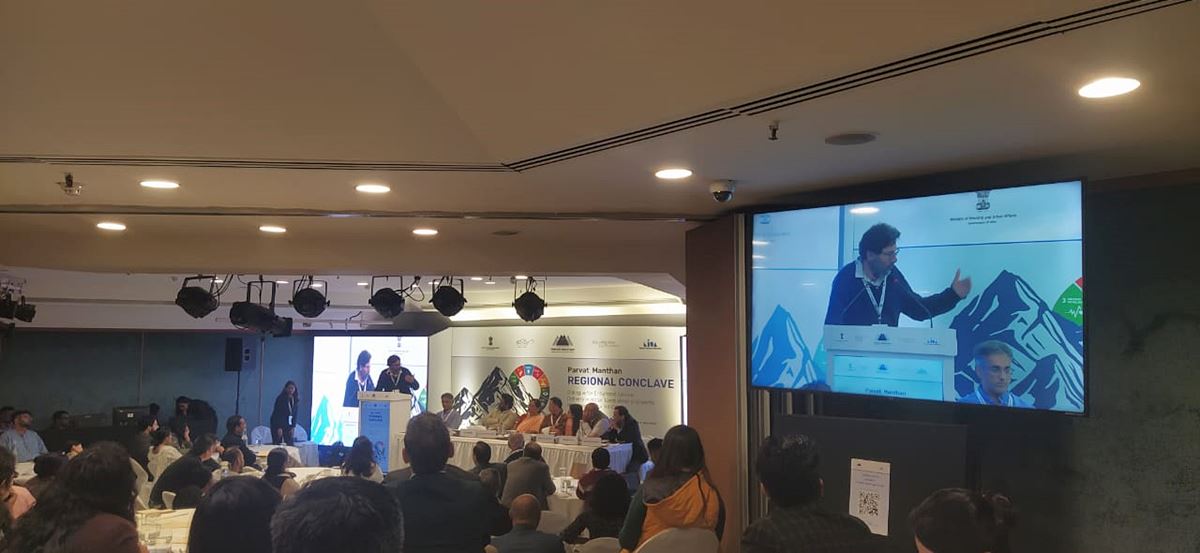
Mr. Tshering Sherpa, Sagarmatha Pollution Control Committee, Nepal showcased how a community based NGO has been providing solid waste management services in the Everest region for the trekkers, mountaineers and communities.. The “carry me back” initiative calls on trekkers to bring back waste to the MRF that is sent to Kathmandu in collaboration with air lines. The Committee has been using drones to pick up waste from the upper base camps in Everest and other mountains. The committee also provides ‘poo bags’ for climbers that contain chemicals and powders that solidify human excrement and make it largely odourless and bring it back with them. Mr Jigme Gembo, Department of Environment and Climate Change, Bhutan shared the Zero Waste Bhutan vision and road map. Mr Atin Biswas CSE highlighted the issues and challenges of solid waste management in the Himalaya and mountains with the geography, altitude and spread of communities. He highlighted the need for mountain resources and technology as well policies that are sensitive to the mountains. Mr. Roshan Rai, Integrated Mountain Initiative highlighted the need for a narrative shift to look at waste beyond the end of life management issue but in its entire life cycle. He called out that waste is a design flaw and a production issue and the responsibility needs to go beyond citizen and ULB action. He shared the Himalayan Cleanup 2024 results were 90% plus items picked was plastic waste of which 75% plus was non recyclable that busts the myth that we can recycle ourselves of the plastic pollution crisis. He added that 84.2 percent of all plastics collected came from food packaging and most (71%) of these plastics are non-recyclable that shows the food and waste intersect. He shared that there is mounting evidence that points to the link between non-communicable disease, mental health issues and ultra processed food consumption. He called on the need to design plastic waste out of the system and in the intermediary implement the Extended Producer Responsibility Rules with mountain targets and not geographical neutrality. This was corroborated by Mr Pradeep Sangwan, Healing Himalayas who mentioned the EPR is not working in the Himalaya. He shared the important role of community mobilisation in solid waste management. Mr Roshan called on the Parvat Manthan to be a “high ambition” platform and landscape to end plastic pollution. Ms Kiranmayee BORDA highlighted the challenges of legacy waste management in the Himalaya and not having a good case to cite for the Himalaya.
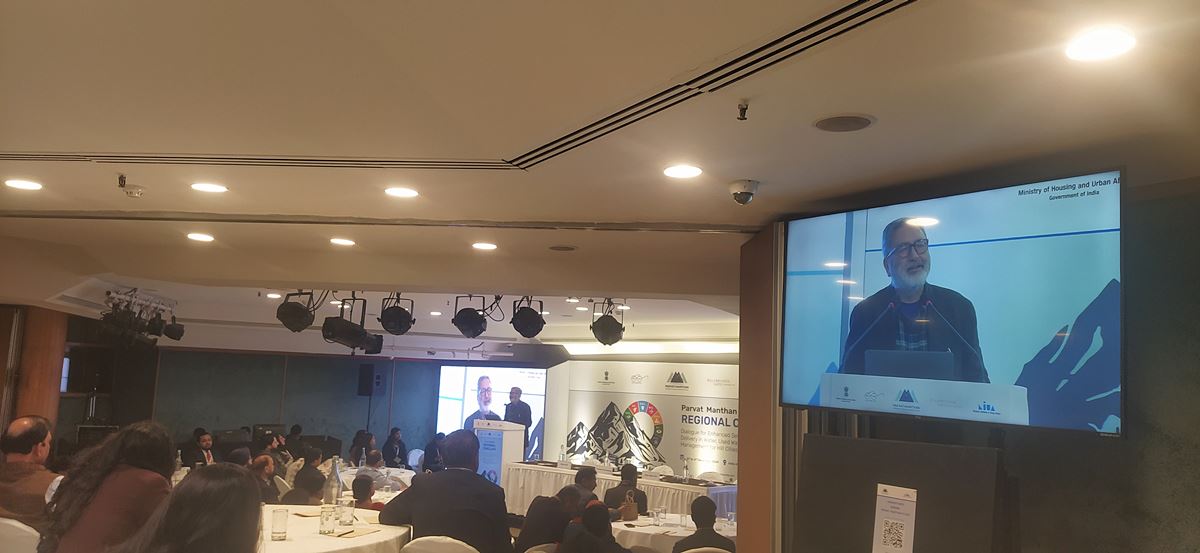
The Parvat Manthan also saw the release of “Untold stories from the Himalaya: 20 solutions for water and waste management” as well as an exhibition with a host of technological solutions was on display at the venue.
The need for mountain sensitive technologies to manage liquid waste was the final session of the Parvat Manthan. The session called on the need for science, policy and practice to intersect. Mr Ramesh Negi President Integrated Mountain Initiative concluded by reiterating the importance of the Himalaya, the services rendered and the need for the nation to pay the Himalaya her dues. He also shared the need for policy makers and practitioners to engage with mountain universities and colleges whose knowledge is contextually relevant to the landscape.
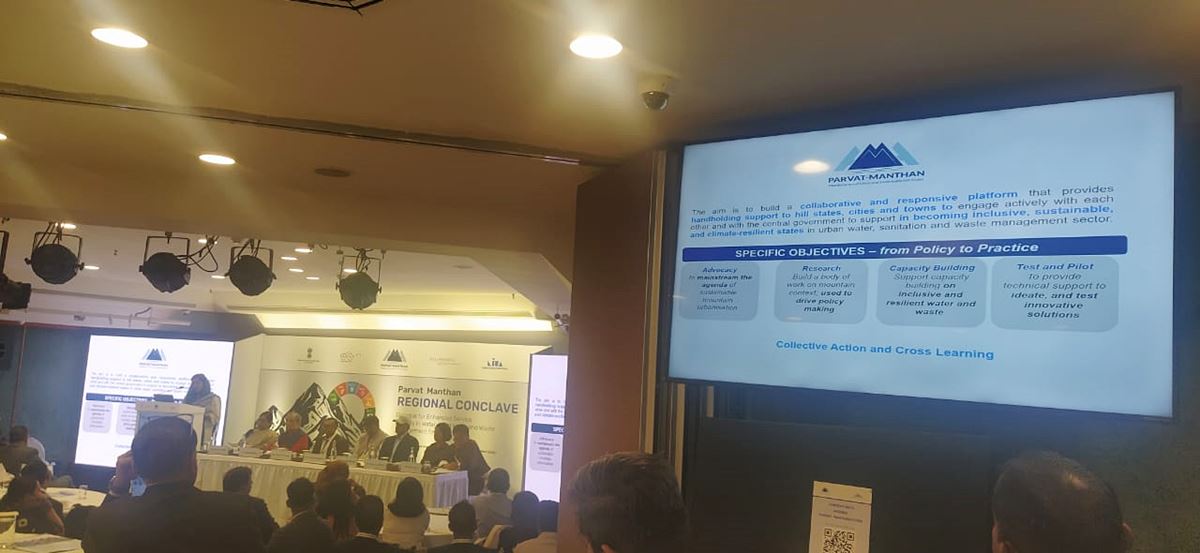
Site by Naulak Web Design.

Publications
- Annual Reports
- Proceedings
-- MLM
-- MoMS
-- SMDS
-- Workshops
-- Youth Summit
- Policy Briefs
- Study Reports
- Webinar Archive
- THC Reports